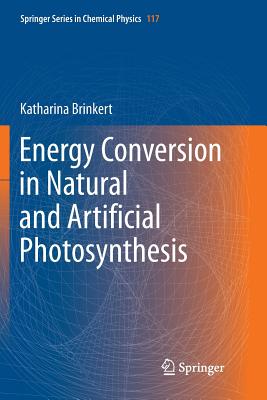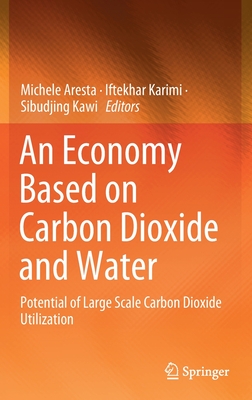Carbon Dioxide Reduction Through Advanced Conversion and Utilization Technologies
暫譯: 透過先進轉換與利用技術減少二氧化碳排放
Zheng, Yun, Yu, Bo, Wang, Jianchen
- 出版商: CRC
- 出版日期: 2021-03-31
- 售價: $2,420
- 貴賓價: 9.5 折 $2,299
- 語言: 英文
- 頁數: 306
- 裝訂: Quality Paper - also called trade paper
- ISBN: 0367779862
- ISBN-13: 9780367779863
海外代購書籍(需單獨結帳)
相關主題
商品描述
Carbon Dioxide Reduction through Advanced Conversion and Utilization Technologies covers fundamentals, advanced conversion technologies, economic feasibility analysis, and future research directions in the field of CO2 conversion and utilization.
This book emphasizes principles of various conversion technologies for CO2 reduction such as enzymatic conversion, mineralization, thermochemical, photochemical, and electrochemical processes. It addresses materials, components, assembly and manufacturing, degradation mechanisms, challenges, and development strategies. Applications of conversion technologies for CO2 reduction to produce useful fuels and chemicals in energy and industrial systems are discussed as solutions to reduce greenhouse effects and energy shortages. Particularly, the advanced materials and technology of high temperature co-electrolysis of H2O and CO2 to produce sustainable fuels using solid oxide cells (SOCs) are reviewed and the introduction, fundamentals, and some significant topics regarding this CO2 conversion process are discussed.
This book provides a comprehensive and clear picture of advanced technologies in CO2 conversion and utilization. Written in a clear and detailed manner, it is suitable for students as well as industry professionals, researchers, and academics.
商品描述(中文翻譯)
《透過先進轉換與利用技術減少二氧化碳》涵蓋了二氧化碳(CO2)轉換與利用領域的基本原理、先進轉換技術、經濟可行性分析及未來研究方向。
本書強調各種二氧化碳減少轉換技術的原理,例如酶轉換、礦化、熱化學、光化學及電化學過程。內容涉及材料、元件、組裝與製造、降解機制、挑戰及發展策略。討論了將轉換技術應用於二氧化碳減少,以生產有用的燃料和化學品在能源和工業系統中的應用,作為減少溫室效應和能源短缺的解決方案。特別是,回顧了使用固態氧化物電池(SOCs)進行水(H2O)和二氧化碳的高溫共電解以生產可持續燃料的先進材料和技術,並討論了這一二氧化碳轉換過程的介紹、基本原理及一些重要主題。
本書提供了二氧化碳轉換與利用先進技術的全面而清晰的概述。以清晰且詳細的方式撰寫,適合學生、業界專業人士、研究人員及學術界人士閱讀。
作者簡介
Yun Zheng is studying for a PhD degree from the Institute of Nuclear and New Energy Technology (INET) at Tsinghua University, China. He received his BS and MS degrees in chemistry from China Three Gorges University in 2012 and Ocean University of China in 2015, respectively. During 2009-2012, he studied in Engineering Research Center of Eco-environment in Three Gorges Reservoir Region, Ministry of Education, China for investigations of photocatalysis and photo-electrocatalysis of carbonaceous contaminants using doped semiconductor and organometallic complex materials. The research topic in Key Laboratory of Marine Chemistry Theory and Technology, Ministry of Education, China during 2012-2015 is electrodialysis and membrane bioreactor. His current research interests are electrochemical energy storage and conversion, especially for the research of high temperature electrolysis of CO2/H2O to produce sustainable fuels using solid oxide electrolytic cells (SOECs).
Dr. Bo Yu is an associate professor at Institute of Nuclear and New Energy Technology (INET) at Tsinghua University, China. Dr. Yu obtained her B.S. and M.Sc. in physical chemistry from Northeastern University in 1997 and 2000, respectively. She received her PhD from Tsinghua University in 2004 and joined the Nuclear Science & Engineering Department at Massachusetts Institute of Technology (MIT) as a visiting researcher in 2012. Dr. Yu has been responsible for the research and development of nuclear hydrogen or syngas production through high temperature electrolysis of CO2/H2O at INET since 2005. Her research interests are electrochemical energy storage and conversion with some focuses on solid oxide cells (SOFC/SOEC) technologies, surface/interface electrochemistry, theoretical and experimental analyses of electrode kinetics, electrocatalysis and applied electrochemistry. She is the author/co-author of more than 100 peer-reviewed articles, over 30 patents and several book chapters. Dr. Yu is a Board Member of Nuclear Hydrogen Division of International Associate Hydrogen Energy (IAHE). She is also an Associated Editor of the International Journal of Energy Technology & Policy.
Dr. Jianchen Wang is a professor at the Institute of Nuclear and New Energy Technology (INET) at Tsinghua University, China. He earned his B.S. degree in physical chemistry and master's degree in applied chemistry from Tsinghua University in 1987 and 1992. He has worked in INET since 1987. He obtained a position as an associate professor in 1998 and took a position as a professor in 2004 in INET. He is a deputy director of China Society of Nuclear and Radiochemistry. His research interests are in the areas of nuclear chemistry, separation chemistry in actinides and other nuclear fission elements.
Dr. Jiujun Zhang is a Professor at Shanghai University and Principal Research Officer (Emeritus) at National Research Council of Canada (NRC). Dr. Zhang received his B.S. and M.Sc. in Electrochemistry from Peking University in 1982 and 1985, respectively, and his Ph.D. in Electrochemistry from Wuhan University in 1988. After completing his Ph.D., he took a position as an associate professor at the Huazhong Normal University for two years. Starting in 1990, he carried out three terms of postdoctoral research at the California Institute of Technology, York University, and the University of British Columbia. Dr. Zhang has over thirty years of R&D experience in theoretical and applied electrochemistry, including over eighteen years of fuel cell R&D (among these 6 years at Ballard Power Systems and 12 years at NRC-IFCI (before 2011)/NRC-EME (after 2011), and 3 years of electrochemical sensor experience. Dr. Zhang holds several adjunct professorships, including one at the University of Waterloo, one at the University of British Columbia and one at Peking University. Up to now, Dr. Zhang has co-authored more than 400 publications including 230 refereed journal papers with approximately 22000 citations, 18 edited /co-authored books, 41 book chapters, as well as 110 conference and invited oral presentations. He also holds over 10 US/EU/WO/JP/CA patents, 11 US patent publications, and produced in excess of 90 industrial technical reports. Dr. Zhang serves as the editor/editorial board member for several international journals as well as Editor for book series (Electrochemical Energy Storage and Conversion, CRC press). Dr. Zhang is an active member of The Electrochemical Society (ECS), the International Society of Electrochemistry (ISE, Fellow Member), and the American Chemical Society (ACS), Canadian Institute of Chemistry (CIC), as well as the International Academy of Electrochemical Energy Science (IAOEES, Board Committee Member).
作者簡介(中文翻譯)
雲正正在中國清華大學核能與新能技術研究所攻讀博士學位。他於2012年在中國三峽大學獲得化學學士學位,並於2015年在中國海洋大學獲得化學碩士學位。在2009年至2012年間,他在中國教育部三峽水庫區生態環境工程研究中心進行研究,探討使用摻雜半導體和有機金屬複合材料對碳污染物的光催化和光電催化。2012年至2015年間,他在中國教育部海洋化學理論與技術重點實驗室的研究主題為電滲析和膜生物反應器。他目前的研究興趣為電化學能量儲存與轉換,特別是使用固體氧化物電解槽(SOEC)進行高溫電解CO2/H2O以生產可持續燃料的研究。
余博博士是中國清華大學核能與新能技術研究所的副教授。余博士於1997年和2000年分別在東北大學獲得物理化學學士和碩士學位。她於2004年在清華大學獲得博士學位,並於2012年作為訪問研究員加入麻省理工學院(MIT)核科學與工程系。自2005年以來,余博士負責在INET進行高溫電解CO2/H2O生產核氫或合成氣的研究與開發。她的研究興趣包括電化學能量儲存與轉換,特別專注於固體氧化物電池(SOFC/SOEC)技術、表面/界面電化學、電極動力學的理論與實驗分析、電催化及應用電化學。她是超過100篇同行評審文章的作者或合著者,擁有超過30項專利及數個書籍章節。余博士是國際氫能協會(IAHE)核氫分會的董事會成員,並擔任《國際能源技術與政策期刊》的副編輯。
王建辰博士是中國清華大學核能與新能技術研究所的教授。他於1987年和1992年在清華大學獲得物理化學學士和應用化學碩士學位。自1987年以來,他一直在INET工作,於1998年獲得副教授職位,並於2004年晉升為教授。他是中國核化學與放射化學學會的副主任。其研究興趣包括核化學、錒系元素及其他核裂變元素的分離化學。
張久軍博士是上海大學的教授及加拿大國家研究委員會(NRC)的首席研究官(名譽)。張博士於1982年和1985年在北京大學獲得電化學學士和碩士學位,並於1988年在武漢大學獲得電化學博士學位。完成博士學位後,他在華中師範大學擔任副教授兩年。自1990年起,他在加州理工學院、約克大學和不列顛哥倫比亞大學進行了三期的博士後研究。張博士在理論和應用電化學方面擁有超過三十年的研發經驗,包括超過十八年的燃料電池研發(其中6年在Ballard Power Systems,12年在NRC-IFCI(2011年前)/NRC-EME(2011年後)),以及3年的電化學傳感器經驗。張博士擁有多個兼任教授職位,包括滑鐵盧大學、不列顛哥倫比亞大學和北京大學。至今,張博士已共同撰寫超過400篇出版物,包括230篇經過審核的期刊論文,約22000次引用,18本編輯/合著書籍,41個書籍章節,以及110次會議和邀請口頭報告。他還擁有超過10項美國/歐盟/世界知識產權/日本/加拿大專利,11項美國專利出版物,並產出超過90份工業技術報告。張博士擔任多個國際期刊的編輯/編輯委員會成員,並擔任書籍系列的編輯(電化學能量儲存與轉換,CRC出版社)。張博士是電化學學會(ECS)、國際電化學學會(ISE,榮譽會員)、美國化學學會(ACS)、加拿大化學學會(CIC)以及國際電化學能量科學學院(IAOEES,董事會委員)的活躍成員。































